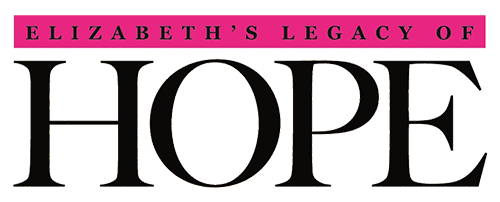Earlier this year, we launched our new partnership in Sierra Leone with an organisation called Enable the Children (EtC). EtC is a subsidiary of World Hope International, an American non-governmental organisation that supports disadvantaged and disabled children across the Globe. We are very excited about this new project; it is managed by one of its leading physiotherapists, Anna Vines, a British girl who shares our philosophy of providing our very needy children with all the support they need to achieve as full, happy and healthy lives as possible. ETC also provides support for the family unit as they learn to look after the child and provide a loving, nurturing home life. As cultural beliefs lead many mothers to place blame upon themselves when a child is born with or acquires a disability, ETC works with mothers so they understand each child’s medical case and to reassure parents that they’ve done nothing wrong.
Prior to working with us, Anna and her team cared for over 900 children in Sierra Leone with a number of very challenging conditions, including cerebral palsy and Downs Syndrome.
Our partnership with EtC is currently enabling us to support 12 amputees in the country’s capital, Freetown. These include children who have lost arms; we don’t currently provide prosthetic arms – because our purpose is to help amputees walk, so children who have lost legs receive prosthetic legs – but we want to extend our supporting to helping those missing upper limbs too, because their needs also need to be met.
So, with Anna, we are providing prosthetics where we can; in addition to education, counselling and physiotherapy for our children. And look forward to helping many more, in the not too distant future.
- Access to mobility: we provided access to prosthetics or other mobility devices (crutches, wheelchairs), surgeries and aftercare to ensure comfortable use. We provided medical support to each individual child until it stops growing.
- Access to education: we supported the integration of child amputees into schools, by paying for school fees and associated costs (books, uniforms) for one year, before enrolling families in the Family Business Scheme. We ensured admission in suitable institutions, from nursery school to university level. Additionally, some students are enrolled in skills training courses, ranging from IT studies to vocational training as electricians and tailors.
- Access to counselling: the social work component recognises that each of the beneficiaries is likely to face individual barriers in their homes, in their education, and in combatting their disabilities with some having struggled considerably due to stigma or trauma. We provided individual, family and group counselling.
- Building sustainable futures – the Family Business Scheme: to ensure that sustainable educational support for the child can be secured in the future, we addressed the underlying issue of gross poverty that characterises most child amputees’ homes. The programme consisted of business mentoring and training to develop an individually tailored business plan. The families then access micro-grants and savings schemes, which sees the family use the income to grow their business and save the profits.
- Fighting against stigma: Cultural stigmas are part of the reason why child amputees are at a greater risk than the average child in Sierra Leone of not receiving an education, and are still often referred to as ‘debul pikin’ – a term meaning devil child. We therefore engaged with communities and the broader public through radio programmes and stakeholder meetings to educate the public about the rights of the disabled and discourage discrimination.
Visit to Sierra Leone – by Sarah Hope, Founder and Trustee of Elizabeth’s Legacy of Hope
Quick facts
Who? In June 2012, the project began with 66 child amputees. The project was first extended to a total of 100 beneficiaries in November 2012 and then to a total of 147 in May 2014. This project has now come to and end and we are currently investigating a new partnership in Sierra Leone.
Where? We worked across four main locations, Freetown, the capital of Sierra Leone, and Makeni, Bo and Kono.
What? Responding to the medical, educational and psychosocial needs of child amputees
Why is our work important?
Sierra Leone is home to our largest project due to the immense need for support:
- Sadly, child amputees are often seen out of school, begging on the streets. Child amputees are a particularly common phenomenon, since amputations were used indiscriminately by rebel forces during Sierra Leone’s ten-year civil war which ended in 2002. To terrorise and intimidate the civilian population, arms, legs, lips, noses and ears of children as young as six months old were amputated.
- Sierra Leone is particularly ill-equipped to address the problem without help: though the country has been on the road to recovery since the civil war ended in 2002, Sierra Leone remains one of the poorest countries in the world and ranks among the ten least developed countries globally, according to the Human Development Index.
- The country has also been badly affected by the Ebola outbreak in West Africa in 2014, which has put an incredible strain on an already weak health infrastructure.

» To read more visit our country profiles about Liberia, India and Sierra Leone.
» Learn more about the project in our Sierra Leone Progress Report July 2015
» Read more about Myenie, Mohamed and Hannah, three of our beneficiaries from Sierra Leone.
» And watch the video testimonials of Mary and Shekneh, two more of our beneficiaries, and Henrietta, one of our social workers.
Photo gallery
